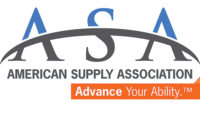As background, the Renewable Fuel Standard (RFS) program was created under the Energy Policy Act of 2005, which amended the Clean Air Act (CAA).
The Energy Independence and Security Act of 2007 (EISA) further amended the CAA by expanding the RFS program. The RFS program is a national policy that requires a certain volume of renewable fuel to replace or reduce the quantity of petroleum-based transportation fuel, heating oil or jet fuel. Obligated parties under the RFS program are refiners or importers of gasoline or diesel fuel. Compliance is achieved by blending renewable fuels into transportation fuel or by obtaining credits (called renewable identification numbers or RINs) to meet an EPA-specified renewable volume obligation.
ASA has followed the RFS program for some time and has been involved in addressing the significant impact the program has and continues to have on small refineries across the country – many of which are customers of our PVF members. Since producing and blending ethanol is unrealistic for many oil refiners due to expensive capital costs, Congress created RINs, tradable credits for meeting biofuels mandates. Companies issue RINs and report them to the Environmental Protection Agency at the point of biofuels production.
Oil refineries that don’t produce biofuels can buy RINs from those who do. RINs prices fluctuate widely and are subject to Wall Street speculation. Basically, the federal government created a fake market that redistributes wealth to big ethanol producers. Meanwhile, refineries without ethanol production capability lose profitability. RINs cost jobs in some cases. Philadelphia Energy Solutions, the largest refinery on the East Coast, filed for bankruptcy while citing the RFS and expensive RINs as the cause. About 1,100 jobs are at stake. Oil refineries that manage to stay in business do so by passing RINS costs to consumers.
Through the efforts of ASA and other organizations, Section 211(o)(7) of the CAA allows the administrator of EPA, in consultation with the secretaries of Agriculture and Energy, to waive the requirements of the RFS under certain criteria. The waiver can be issued if the administrator determines — after a notice and comment period — that implementation of the RFS requirements would severely harm the economy or environment of a state, a region or the United States. The waiver program provides a way for small-volume refineries relief from the additional costs associated with compliance.
On Oct. 4, 2018, the White House rolled out a new plan that would allow higher blends of ethanol in vehicle fuels amid concerns that the change could lead to more air pollution. The administration’s memo calls to extend the sale of E15 — consisting of 15% ethanol blended into gasoline — year- round. The fuel was blocked between June 1 and Sept. 15, as science shows burning ethanol in warmer temperature leads to heightened ground-level ozone pollution and smog.
Additionally, the White House memo will direct EPA to consider other measures to help stabilize and make the RIN market more transparent. Currently, refiners and importers of natural gas must blend their fuels with ethanol before sales or purchase RINs sold on the market. The administration’s RIN reform would include requiring public disclosure of RIN, limit the length of time that non-refineries or importers can hold a RIN and improve compliance obligations on a more frequent basis.
Immediately following the announcement a group of 20 senators sent a letter to the president opposing the new plan, noting “a one-sided approach to addressing concerns related to the RFS that favors only one industry stakeholder is misguided.” The senators go on to note the new plan would do nothing to the impact on refinery jobs and also that the higher blends could have a negative impact on engine and fuel-system durability.
U.S. Senator Pat Toomey (R-Pa.) is raising concerns about an administration directive for the EPA to allow the year-round sale of E15 gasoline. In an interview with the Conservative Review, Senator Toomey said pursuing this legally dubious rule change without providing relief to refineries represents a missed opportunity that puts Pennsylvania jobs in jeopardy.
The ASA Advocacy Team will continue to follow this issue closely. We would like to hear from you on this issue, so let us know if you support the concerns of the 20 senators and the potential negative impact on refineries that your company may provide services.
Contact me, Jim Kendzel at jkendzel@asa.net and let me know your thoughts on this very important issue.







